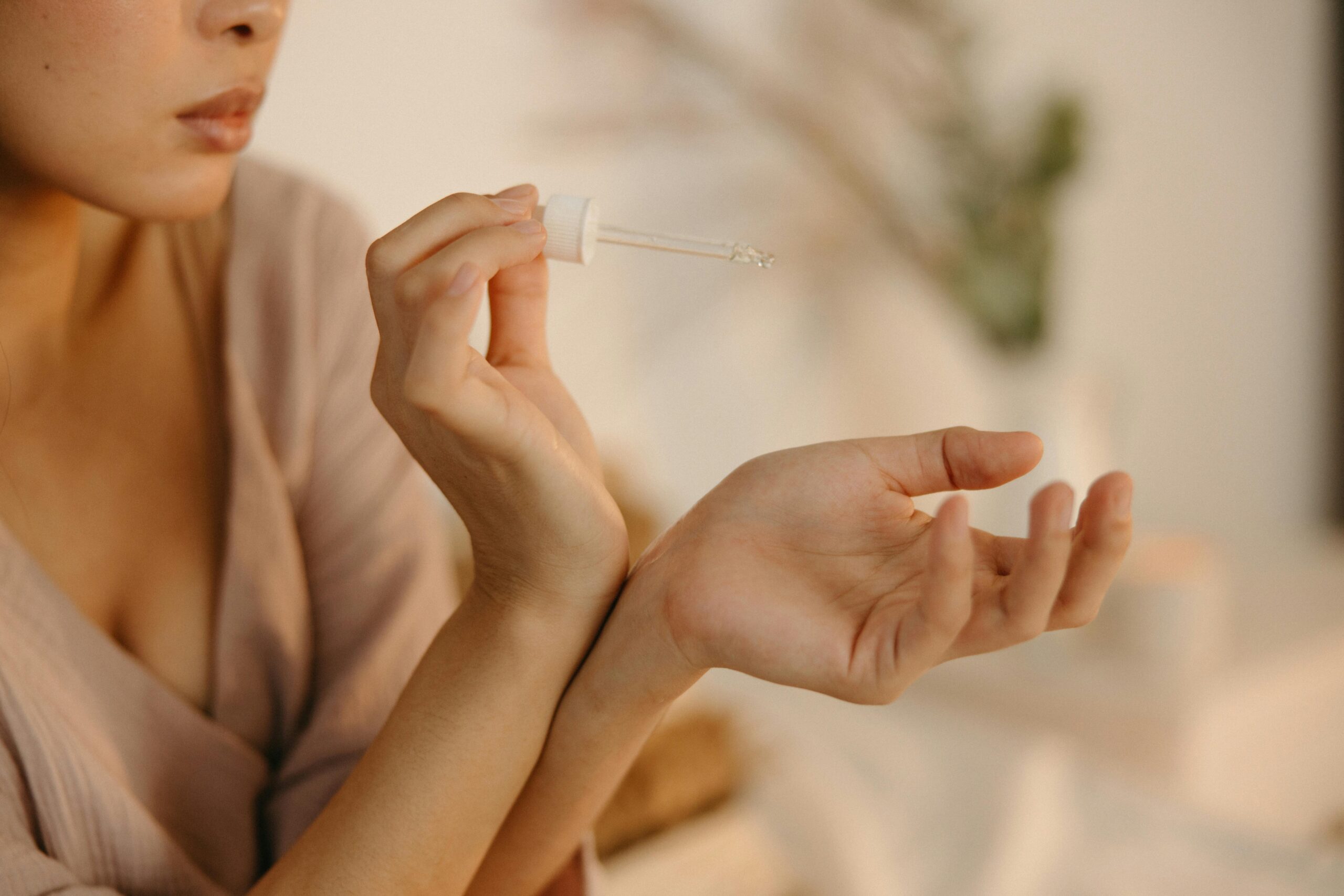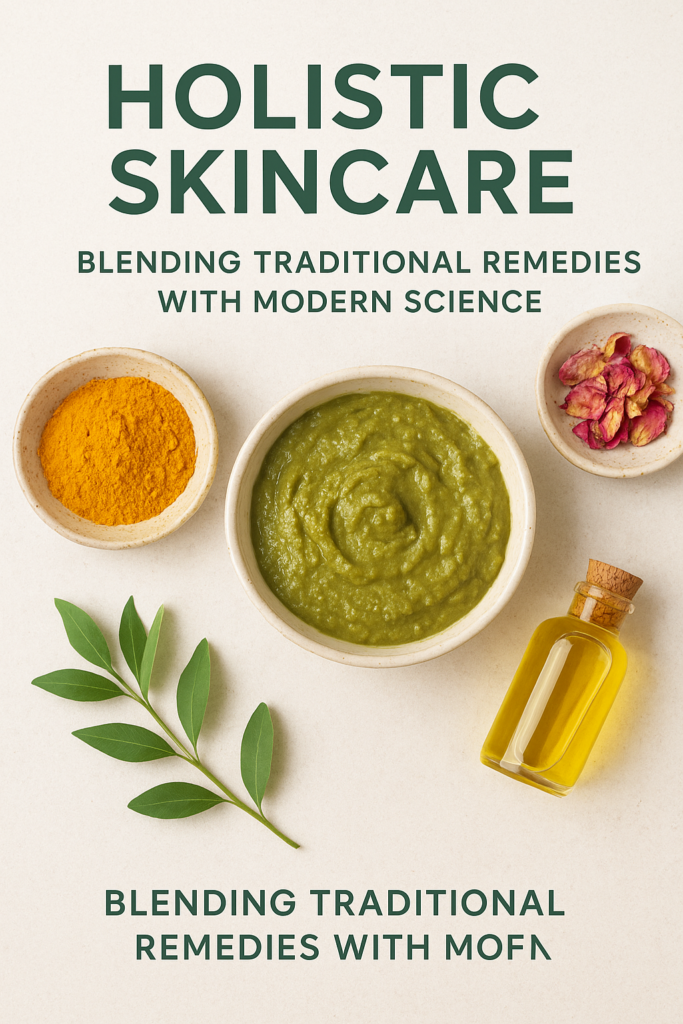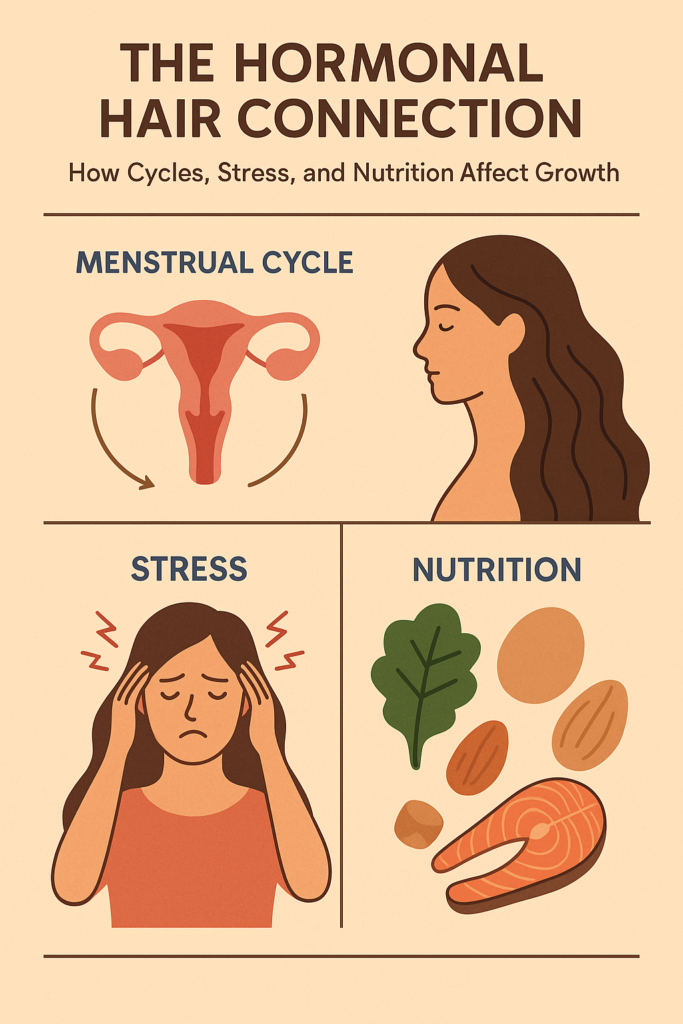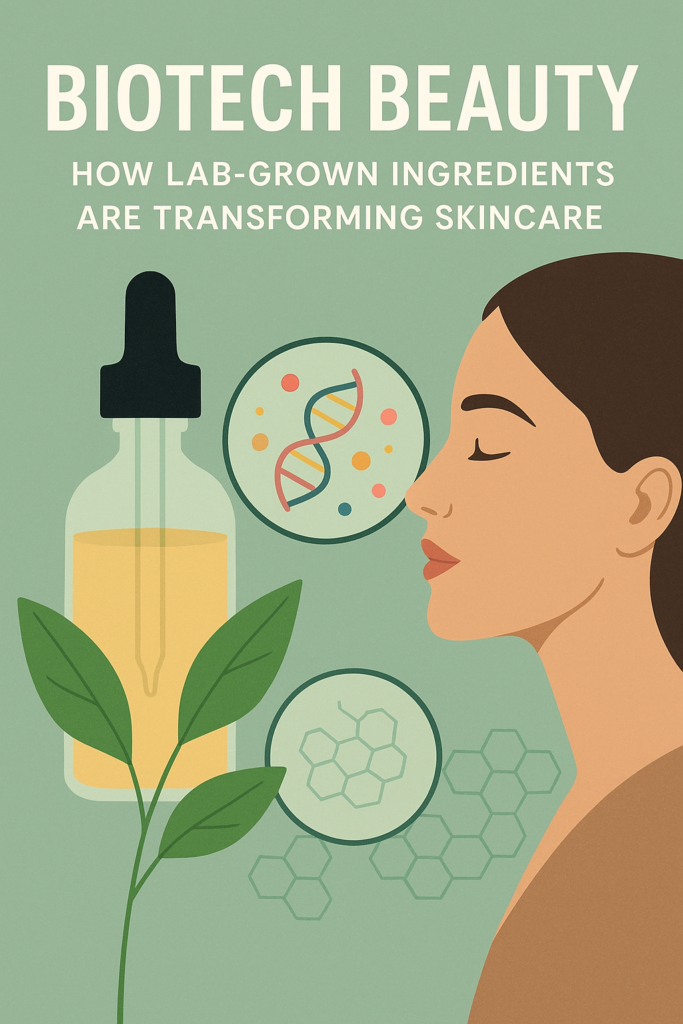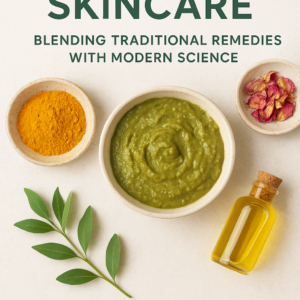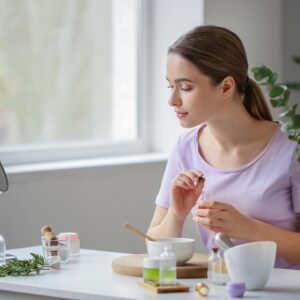Perfume is often the final, invisible touch to our personal style — a scent that tells a story, stirs emotion, and lingers in memory. But behind the allure of a beautiful fragrance lies a hidden question: What are you really putting on your skin?
As wellness trends push consumers toward cleaner and more mindful beauty choices, the debate between natural fragrance oils and synthetic perfumes has taken center stage. Are natural scents truly safer and better for your skin? Or are synthetics unfairly demonized despite their consistency and longevity?
In this article, we’ll explore the science, benefits, concerns, and myths around natural vs. synthetic fragrances, helping you make the best choice for your body, lifestyle, and values.
1. What Are Natural Fragrance Oils?
Natural fragrance oils are derived from botanical sources — plants, flowers, fruits, resins, and spices. These oils are typically extracted through processes like steam distillation, cold pressing, or solvent extraction.
✅ Common Natural Sources:
- Essential oils (e.g., lavender, eucalyptus, sandalwood)
- Absolutes (e.g., jasmine, rose)
- CO₂ extracts (e.g., chamomile, ginger)
- Carrier oils infused with aromatic herbs (e.g., calendula in jojoba)
Natural fragrances often smell more complex and change over time on the skin due to their volatile compounds.
2. What Are Synthetic Perfumes?
Synthetic fragrances are man-made aromatic compounds created in laboratories to mimic or invent scents. They can be inspired by natural smells or be entirely original creations.
🧪 Types of Synthetic Fragrance Ingredients:
- Aroma chemicals (e.g., linalool, vanillin, aldehydes)
- Nature-identical synthetics (chemically identical to natural compounds)
- Completely synthetic creations (not found in nature)
Most mainstream perfumes on the market are made with synthetic fragrance components — often hundreds in a single blend.

3. Skin Health: How They Compare
🌿 Natural Oils – Pros & Cons for Skin
Pros:
- Lower risk of synthetic chemical irritation
- Rich in beneficial compounds (antioxidants, anti-inflammatories)
- Often antimicrobial or soothing
- Eco-conscious and biodegradable
Cons:
- Can trigger allergies or sensitivities (e.g., citrus oils, cinnamon, tea tree)
- Phototoxic risks with some oils (e.g., bergamot, lemon)
- Less stable — shorter shelf life, prone to oxidation
- Scent may fade faster
Tip: Always dilute essential oils before applying directly to skin.
🧪 Synthetic Perfumes – Pros & Cons for Skin
Pros:
- More consistent and longer-lasting scent
- Less batch variation or instability
- Allows creation of allergen-free alternatives
- Often less expensive
Cons:
- Frequently contain phthalates, which may disrupt hormones
- May include irritants or allergens (not always disclosed due to trade secrets)
- Can cause contact dermatitis or headaches in sensitive individuals
- Often tested less rigorously for skin wellness
4. Transparency and Labeling – What Are You Really Wearing?
Fragrance ingredients in beauty products often appear on labels as simply “fragrance” or “parfum.” This vague terminology can hide up to hundreds of different chemicals, both synthetic and natural.
💡 What to Look For:
- “100% natural fragrance” or “essential oil blend” for botanical options
- IFRA compliance (International Fragrance Association) for safety standards
- Phthalate-free, paraben-free labeling
- INCI disclosure (International Nomenclature of Cosmetic Ingredients)
Brands with clean beauty certifications or transparent ingredient policies are more likely to reveal what’s in their fragrances.
5. Environmental & Ethical Considerations
🌎 Natural Oils:
- Often harvested sustainably — but not always. Some (like sandalwood or rosewood) are linked to deforestation.
- Require a lot of raw material (e.g., it takes thousands of rose petals for 1 oz of oil)
- Typically biodegradable and less polluting
🧪 Synthetic Perfumes:
- Produced in controlled environments — less demand on natural resources
- May involve petrochemical derivatives
- Some are non-biodegradable, contributing to aquatic toxicity
Eco-ethical note: Choose ethically sourced naturals or green synthetics that are biodegradable and cruelty-free.
6. Performance: Scent Longevity and Strength
- Synthetic perfumes tend to last longer on the skin (6–12 hours) and have stronger sillage (scent trail).
- Natural oils may require reapplication every few hours and offer a more subtle, close-to-skin fragrance.
This difference is one reason synthetics dominate the perfume industry. However, natural enthusiasts often prefer the evolving scent profile and intimacy of botanical blends.
7. Who Should Choose Natural Fragrances?
Natural fragrance oils may be a better fit if you:
- Have sensitive skin or known allergies to synthetic ingredients
- Are seeking hormone-safe, toxin-free options
- Prefer earthy, subtle scents over bold or sweet perfumes
- Value eco-conscious and minimalistic beauty routines
- Are into aromatherapy or wellness rituals
8. Top Clean Fragrance Brands to Explore
| Brand | Type | Notable Scents/Features |
|---|---|---|
| Abel | Natural + sustainable | Cardamom, pink iris, neroli |
| Heretic | Botanical + seductive | Dirty Rose, Dirty Coconut |
| Lurk | Essential oil perfumes | Amber, sandalwood, vetiver |
| Maison Louis Marie | Plant-based blends | No.04 Bois de Balincourt |
| Henry Rose | Transparent + clean | Hypoallergenic, no phthalates |
9. DIY Natural Fragrance Oil Blends
🌸 Floral Romantic
- 3 drops rose otto
- 2 drops ylang-ylang
- 2 drops lavender
- 10 ml jojoba oil
🍋 Fresh Citrus Uplift
- 4 drops sweet orange
- 2 drops lemongrass
- 1 drop peppermint
- 10 ml grapeseed oil
🌲 Earthy Grounding
- 3 drops cedarwood
- 2 drops patchouli
- 2 drops frankincense
- 10 ml almond oil
Always patch test before full application. Use a roll-on bottle for easy daily use.
10. Conclusion – Fragrance Is a Personal Ritual
Whether you lean toward the natural purity of botanicals or the modern magic of synthetic blends, your fragrance is a deeply personal expression. The key lies in knowing your skin, your values, and your lifestyle.
For some, the safety and subtlety of natural oils bring peace of mind and wellness. For others, synthetics offer creativity, longevity, and convenience. There’s room for both in a well-rounded beauty world — just be mindful of what touches your skin.
Holistic Skincare
Holistic Skincare – Blending Traditional Remedies with Modern Science In the ever-evolving world of beauty,…
A Conexão Capilar Hormonal
The Hormonal Hair Connection – How Cycles, Stress, and Nutrition Affect Growth Hair is often…
Biotech Beauty – How Lab-Grown Ingredients Are Transforming Skincare
The Rise of Biotech in the Beauty World In recent years, the beauty industry has…
Natural Fragrance Oils vs. Synthetic Perfumes
Natural Fragrance Oils vs. Synthetic Perfumes – What’s Better for Your Skin? Perfume is often…
Herbal Face Steaming Rituals from Around the World
Herbal Face Steaming Rituals from Around the World – Detox, Relax, Glow In today’s fast-paced,…
The Crystal Skincare Trend – Beauty Tools Charged with Energy
In the ever-evolving world of beauty and wellness, a fascinating trend is capturing the attention…
Forest Beauty
Forest Beauty – How Nature-Based Rituals Like Shinrin-Yoku Enhance Skin and Mood In an age…
DIY Rice Water and Fermented Rinses
DIY Rice Water and Fermented Rinses – Do They Really Work for Hair Strengthening? In…
Caffeine for Hair Growth
Caffeine for Hair Growth – What the Science Says and How to Use It In…
Hair Loss After COVID
Hair Loss After COVID – Understanding Telogen Effluvium and How to Treat It Hair loss…
The Rise of Ayurvedic Hair Care in the U.S.
The Rise of Ayurvedic Hair Care in the U.S. – Herbs and Rituals for Stronger…
Scalp Health Is the New Skincare
Scalp Health Is the New Skincare – Treatments That Start at the Root In the…
The Retinol Revolution
The Retinol Revolution – Gentle Alternatives for Sensitive Skin Without Sacrificing Results Retinol has long…
The Power of Probiotic Skincare
The Power of Probiotic Skincare – Balancing the Skin Microbiome Naturally The term “microbiome” has…
Blue Light and Your Skin
Blue Light and Your Skin – The Hidden Damage of Screen Exposure and How to…
Slugging 2.0
Slugging 2.0 – Advanced K-Beauty Hydration Technique That’s Taking Over TikTok Beyond Basic Slugging In…
The Rise of Skin Cycling
The Rise of Skin Cycling – How to Build a Rotating Skincare Routine for Maximum…
Reflexology and Its Effects on Health and Beauty
Healing Through the Feet – Reflexology and Its Effects on Health and Beauty In today’s…
Natural Remedies for Skin Spots
Natural Remedies for Skin Spots – Little-Known Alternatives That Really Work Skin spots, also known…
Therapeutic Tattoos
Therapeutic Tattoos – How Tattoos Can Help Boost Self-Esteem for People with Scars Scars tell…
